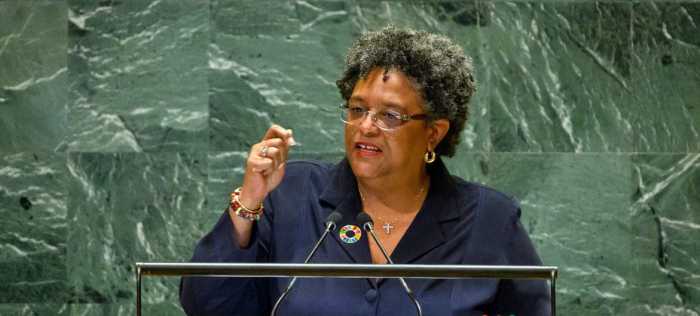Advocates offer mixed, cautious response to new Majority Leader
The new U.S Senate majority leader at Log Cabin Republican. Activists had mixed, but generally positive reactions to the news that Senator Bill Frist, a Tennessee Republican, would replace Senator Trent Lott as majority leader in the U.S. Senate. But, given his voting record on gay and AIDS issues, whether Frist’s ascendancy represents just a change in tone or a substantive shift in Republican policies regarding these issues remains to be seen. “Log Cabin Republicans is thrilled that he is going to be the new majority leader,” said Mark Mead, director of public affairs at the gay Republican group. “We’ve had a working relationship with him for a while, particularly on AIDS issues.” Frist was a featured speaker at a Log Cabin event earlier this year and he recently approached Rich Tafel, the outgoing LCR executive director, and indicated his continuing interest in AIDS matters. “He buttonholed Rich Tafel at an event last month saying, ‘I want to continue working with you on AIDS issues,’” Mead said. “He’s a new, compassionate face. He understands the importance of fully funding AIDS programs and AIDS treatment programs. He’s a refreshing change from the previous majority leader.” The effort to remove Lott, a Mississippi Republican, began after he praised outgoing Senator Strom Thurmond at the 100th birthday party for the South Carolina Republican on December 5 saying the country would have been better off if it had elected Thurmond president in 1948. Thurmond ran on a third party, segregationist ticket. Lott’s voting record opposing extension of the 1964 Civil Rights Act, school busing, a national holiday honoring Martin Luther King, and hate crimes legislation also received scrutiny. While Lott’s ouster was played in the mainstream press as the result of conservatives turning their back on the Mississippi senator because of his racially insensitive comments, in fact, some right wingers have long sought his removal as the Senate’s Republican leader, viewing him as too soft on the Democrats. Like Lott, Frist is a conservative. He voted the American Conservative Union position on 24 key votes in 2001 and he received a 92 percent rating from the group in 2000. In contrast, Frist voted against the positions taken by the Human Rights Campaign (HRC), the nation’s leading gay lobbying group, on all seven key votes the group identified in 2001 and 2002. In 1996, Frist voted against the federal Employment Non Discrimination Act, a bill that banned employment discrimination based on sexual orientation, and for the Defense of Marriage Act, a bill that prevented the federal government from recognizing same sex unions. “Hillary Clinton supports the Defense of Marriage Act, so I’m not sure that’s an issue that separates gay-friendly and not gay-friendly,” Mead argued. “With our working relationship with him, we would like to educate him on employment discrimination issues and I’m sure he would listen to us.” David Smith, HRC’s communications director, said Lott was always an obstacle and that the change in leadership could be a chance to further the group’s agenda. “It’s safe to say that Senator Lott has been an impediment to our issues moving forward,” he said. “Change does represent opportunity and that’s how we are going to approach it.” Smith said that many senators and representatives arrive in Congress with no record or a bad record on gay issues. Those views can be changed. “Very few members have come into Congress supporting our issues,” he said. “Each member has been an evolution… Senator Frist might represent an opportunity and he might maintain the status quo… We are going to approach it with an open mind.” Frist has certainly been visible on AIDS issues. He co-sponsored a bill, ultimately unsuccessful, that would have substantially increased U.S. funding in the global fight against malaria, AIDS, and tuberculosis, but was also faulted for defeating a separate effort to increase international AIDS spending to $600 million. Frist helped slash that amount to $200 million at the behest of the Bush administration. “Many of us were very disappointed at the outcome and what has been reported as Senator Frist’s role,” said Ronald Johnson, associate executive director of the Gay Men’s Health Crisis. “Overall, that earlier effort notwithstanding, he has a positive record on global issues, but has not been very active on domestic issues.” That raises the possibility that his public positions are meant to make him appear sympathetic even as he fights spending on AIDS.


































